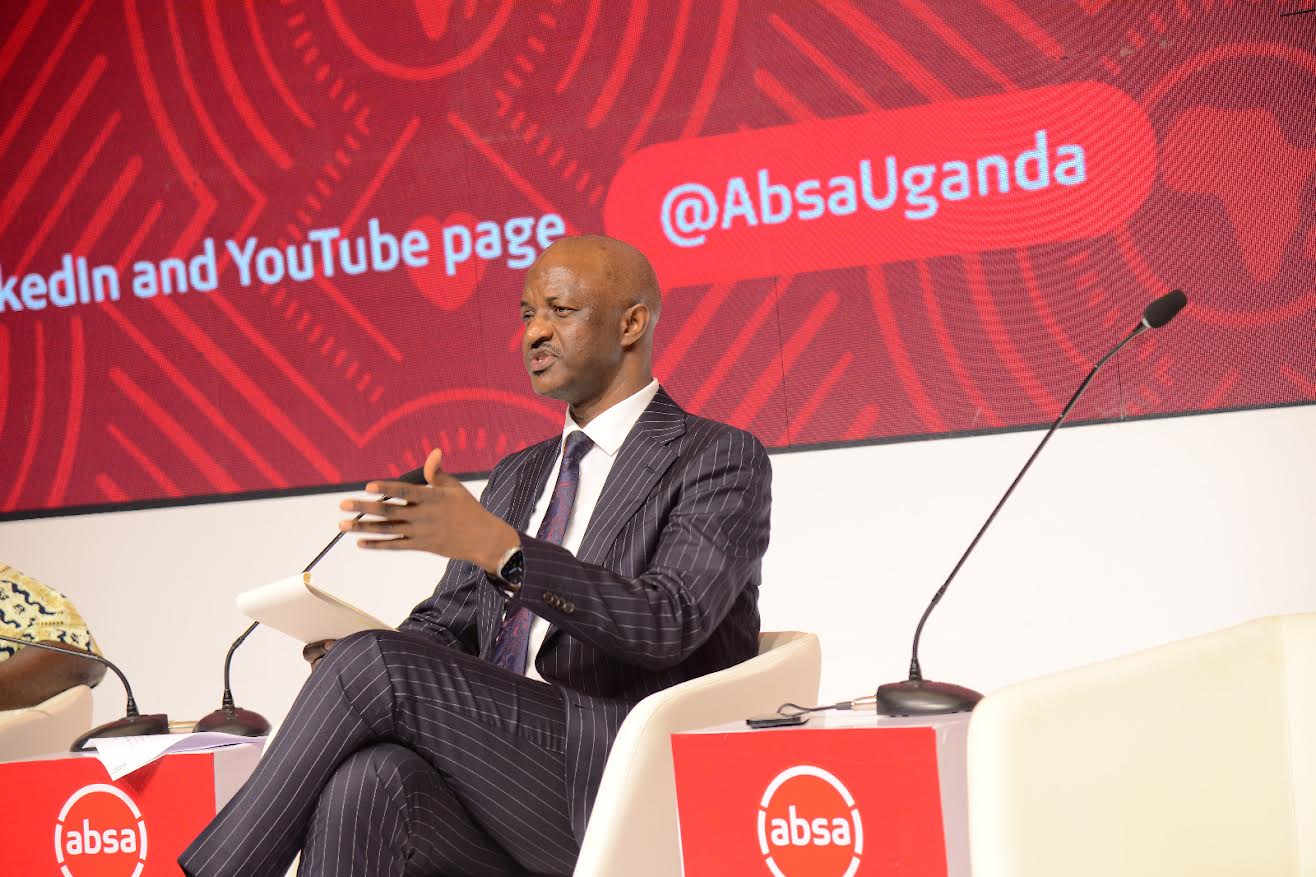Uganda is on a Mission to Change Its Destiny

The Permanent Secretary of the Ministry of Finance Ramathan Ggoobi, who is also the Secretary to Treasury has said Uganda is on a mission to change its destiny, noting that in 15 years from now, naysayers will be proved wrong.
“ We are people on a mission. Some people think we are still in business as usual but we are on a mission to change our destiny and the ball is in our hands,” Ggoobi said.
He was on Friday speaking during a post-budget dialogue organized by Absa Bank Uganda at Kampala Serena Hotel.
Uganda is aiming to achieve a $500 billion economy by 2040, a tenfold increase from its current level.
This ambition is part of a broader strategy focused on key sectors like agro-industrialization, tourism, mineral development, and science, technology, and innovation.
Speaking in line with this ambitious target, the Secretary to the Treasury used the transformation stories of Dubai in UAE and South Korea.
“ I want very Ugandan to join this mission . We are tired of being a poor country. We have ability to also change ourselves. The way we have changed our individual selves. In the early 1990s, Dubai was a poor place in the desert and the leaders there like Sheikh Makhtoum said they must change its destiny and develop that place and make it the most attractive place on earth. Around the same time, there were people across in South Korea also struggling to accelerate growth,” Ggoobi said.
He said the wo countries changed their destinies to become some of the most developed in the world.
“……that is how Korea and UAE struck code that accelerated growth of both and as they say, both economies are some of most attractive and best developed. In fact people in some of the most developed economies spend time in Dubai a desert . The economy of Uganda, too , can get there.”
The Ministry of Finance Permanent Secretary said whereas there are naysayers, Uganda will in 15 years be far ahead.
“I want all us to take away the impossibility thesis from our heads. It is a beautiful dream which we have modeled and if we change certain things, we shall be able to get there.”
Painstaking Journey
Ggoobi however said the journey to a $500 billion economy will not be an easy one , as it will come with a number of things that need to be done in the right way.
“We must clean up by enforcing rules of the game in Uganda. We must enforce laws , regulations and things we set out to do. We must discipline ourselves, right from our households but most importantly at society level,” Ggoobi said.
“ We must team. We must build discipline of consensus of getting teams to work, people knowing you are nothing without others.”
According to government’s ambitious target, the transformation will require doubling the size of the economy every five years, sustaining an annual GDP growth rate above 10 percent, and increasing per capita income from USD 1,039 to USD 7,000.
Ggoobi said government will also focus on skilling its people as one of the ways to change the country’s destiny.
“ No country has transformed with so many people who are unemployable. We must invest in those critical areas demanded by the market.”
The Ministry of Finance Permanent Secretary said Uganda must also invest in climate resilience and ensuring a green economy.
“Gone are the days when development is to come from dirty places. We must realise that now, development is clean. We must preserve environment and we pursue growth by ensuring our investments are climate smart. We must grow our agriculture, industrialise and develop infrastructure without spoiling environment.”
He said this requires a mental shift for everyone, including in government and the private sector.
Ggoobi said with all these, the economy must increase its exports, not only to regional markets but to the continent and world at large.
“We are nothing as Uganda without Africa but to go to Africa you start with East Africa.”
Speaking at the same function, Absa Managing Director, David Wandera hailed the shs72 trillion 2025/26 financial year budget as one that has put Uganda on route to attain the $500 billion economy.
“Budgets must ultimately translate into impact—in jobs created, arrears cleared, and opportunities unlocked for households and entrepreneurs alike. This budget continues to chart an ambitious power for the country, targeting tenfold expansion over the next 15 years and investment in increasing household incomes and micro enterprise industrialization and private sector development, commercialization of agriculture, transport and infrastructure, development, tourism, human capital development, energy, oil and gas development and governance,” Wandera said.
He noted that the budget clearly sets out opportunities for Ugandans in all sectors to benefit in the economy’s growth.
“This is why at Absa we are not watching from the sidelines but our purpose is clear, to be an active catalyst for inclusive growth. We empower livelihoods, back business resilience and enable groth distribution across Uganda.”
He said Absa’s lending in anchored on sectors that drive the country’s development agenda like agriculture, trade, manufacturing and personal financing.
“We support farmers with inputs, manufacturers to scale up and SMEs with working capital.”
Wandera however, urged all players, public and private, to work together in turning policy into prosperity.



0 Comments